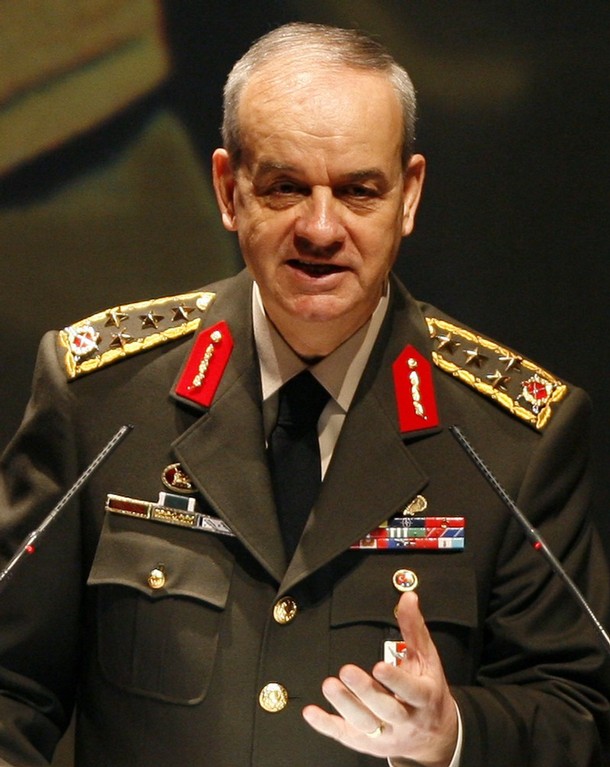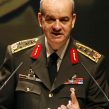
Turkish Army holds Seminar for NATO Members and Partners
Publication: Eurasia Daily Monitor Volume: 6 Issue: 122
By:

On June 22-23, the Turkish army organized the tenth Silk Road General/Admiral seminar in Istanbul, which brought together around 119 military officers from NATO countries, Partnership for Peace (PfP) nations, and the members of NATO’s Mediterranean Dialogue and Istanbul Cooperation Initiative. The theme of this year’s seminar was cooperation between NATO and its partners. However, the Turkish media preferred to highlight the Chief of the Staff General Ilker Basbug’s remarks in its coverage of the event, which provided important clues concerning the military’s perceptions of the country’s security policies and its efforts to eliminate the Kurdistan Workers’ Party (PKK).
As an active member of the transatlantic Alliance, Turkey has played a leading role in NATO’s post-cold war transformation. Through the PfP training center in Ankara, established in 1998 -one of the first examples of its kind- Turkey has organized several training programs and seminars for officers from NATO and its partner countries. These activities played a major role in the integration of several Eurasian, Balkan and Mediterranean nations into the broader transatlantic security architecture. Launched in 2000, the "Silk Road Flag Officers Seminars" is one of those initiatives, whose purpose is "to familiarize participants with NATO’s global missions and developing role in collective security and the European security architecture" (www.bioem.tsk.tr).
In his opening address, Basbug laid out Turkey’s views on the Alliance. He described NATO as a "dynamic and operational organization" and maintained that it performs three vital functions: ensuring the collective security of its members, reinforcing the transatlantic link, and providing a security umbrella so that members can focus their attention on common security challenges. He stressed that Turkey wants to see NATO as the primary political and military institution in the transatlantic community, and considers it as a key pillar of Turkish security policy. Basbug contended that "Turkey is not only a country that contributes to NATO. But it has also provided vital leadership, [through its lead role in NATO operations]" (Anadolu Ajansi, June 22).
Basbug discussed the transformation of the global security environment and its implications for NATO. He argued that "in today’s chaotic world, risks and threats cannot be handled with military instruments alone. In order to eradicate such threats, it is of utmost importance that the international community utilize the elements of both military and civilian power," and develop instruments for conflict prevention. He maintained that, in addition to performing its existing strategic and operational tasks, NATO is under pressure to take on new missions and responsibilities in order to respond to newly emerging threats. He identified two challenges before the transatlantic community: NATO’s internal transformation and its enlargement. First, Basbug noted that Turkey supports NATO’s efforts for restructuring itself to adjust to new conditions. He expressed his hope that comprehensive security cooperation could be developed between NATO and other international organizations, non-NATO countries and NGO’s.
In addition, Basbug discussed Turkey’s views on NATO enlargement. He reiterated Ankara’s position that NATO membership should be open to all European democracies that can fulfill the requirements, and added that Turkey will continue to support NATO’s open door policy because it contributes to the realization of "the idea of a free and united Europe." He emphasized that Macedonia should also be given an opportunity to gain membership. Given its historical ties, Turkey considers this Balkan country as its ally, and supports its bid for joining NATO.
The Deputy Chief of the General Staff Hasan Igsiz also addressed the closing session of the seminar. He emphasized the need to develop joint positions against common threats to global security and expressed Turkey’s support for NATO’s open door policy. Igsiz also called on the transatlantic community to resolve the differences of interpretation encountered in the existing agreements on NATO-E.U. cooperation (Anadolu Ajansi, June 23). Given its unique position as a non-E.U. NATO member, and the troubled course of Turkish-E.U. relations, Turkey occasionally comes under criticism for using its position in NATO as a bargaining chip and complicating NATO-E.U. coordination (EDM, February 9).
Basbug devoted the rest of his speech to terrorism, which he described as the most serious asymmetric threat affecting the international community. He stressed that a proper counter-terrorism strategy should employ both military and non-military instruments. Above all, it should be human-oriented and be based on "winning hearts and minds." These views are similar to what he has advocated in domestic politics for some time (EDM, April 15).
Moreover, he maintained that, at the international level, this threat can only be addressed through the collective efforts of all nations. Basbug called on NATO members to "minimize the differences in their positions and policies, and take a common stance in this struggle." Here, Basbug was implicitly voicing Turkey’s complaint that some NATO members were not sensitive to Turkey’s struggle against the PKK. Ankara argues that the complacency of some European countries toward the activities of the PKK in Europe undermines the spirit of solidarity within the Alliance. Therefore, Basbug sent a warning by saying: "There is no guarantee that those countries unaffected by terrorism today will not be targeted tomorrow."
Basbug recalled Turkey’s decades old struggle against the PKK, and maintained that the country will pursue a comprehensive approach in its own fight that considers all aspects of the issue. Nonetheless, he added that "it is futile to think that economic and socio-cultural measures alone might end terrorism, while terrorist groups remain armed. Therefore, we are determined to fight against the terrorist group [the PKK] until it is completely disbanded and [the terrorists] lay down their arms" (www.tgrthaber.com, June 22).
These remarks received widespread attention within the Turkish media. President Abdullah Gul has been pushing for a new process to address the Kurdish issue through dialogue, and possibly a general amnesty for PKK militants (EDM, May 7, 19). Gul had argued that a consensus had emerged among the state institutions and he raised expectations for a breakthrough. Basbug’s remarks, however, show that the Turkish political and security elite are far from sharing a common position, and it may not be realistic to expect the "historic solution" as advocated by Gul.




